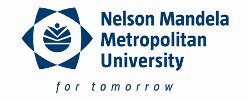This is a general guide to the length of study for the various academic programmes offered at NMMU. Some programmes, particularly postgraduate certificates and diplomas, vary from these durations. Details for specific programmes can be confirmed in the university prospectus or by the Admissions Office.
|
Qualification |
Minimum duration (full-time study) |
| Certificate (Cert) | 1 year |
| Higher Certificate (HCert) | 2 years |
| Diploma (Dip) | 3 years (varies by programme) |
| National Diploma (NDip) | 3 years |
| Bachelor’s degree (eg BA, BCom, BSc) | 3 years |
| Advanced/professional Bachelor’s degrees: BCom(Rationum),BCur, BEd, BEng (Mechatronics), BMus, BPharm, BPsych, Bachelor of Social Work, LLB | 4 years |
| Bachelor of Technology (eg BTech: Civil Engineering) | 1 year |
| Bachelor Honours degree (eg BCom Hons) | 1 year |
| Master’s degree (eg MA, MTech) | 1-2 years |
| Doctorate (eg PhD, DTech) | 2 years |
ALTERNATIVE ACCESS ROUTES INTO MAINSTREAM PROGRAMMES
● Extended Curriculum Programmes
The transition from school to university is challenging for most young people. It is, however, even more dramatic for learners who for various reasons, find that they do not meet the minimum admission requirements of the programme of their choice. NMMU offers a wide range of extended curriculum programmes that provide such students with the opportunity to enrol for an extended programme in order to obtain the same mainstream qualification at the end of their study career (eg. a BCom degree or National Diploma). In practice, it implies that a student will complete a three-year degree or national diploma programme in four years. These programmes provide an environment in which academic support and skills development are integrated with regular academic work. Additional support courses and activities in the first two years of the extended programme assist students to adapt to the university’s learning environment in order to follow the mainstream courses during the last two years of study.
● Recognition of Prior Learning
NMMU is committed to build the capacity of people to reach their full potential. The university therefore subscribes to the national policy of increasing access to higher education, especially for the many people for whom this was not previously possible.
Recognition of Prior Learning (RPL) has particular reference to the prospective mature student who seeks formal acknowledgement and assessment of the skills, knowledge and competencies acquired by means of work and/or life experience, and wishes to gain admission to a formal university programme of their choice. Such learners must take note that RPL entails a formalised comparison of the previous learning and experience of a learner, however obtained, against the learning outcomes required for a specified qualification.
RPL is an internationally-accepted practice in higher education institutions and may be applied in two ways, namely i) for the purpose of credit transfer for modules or subjects studied at NMMU or another post-secondary or tertiary education institution in order to reduce the amount of duplicated learning, and
ii) for status recognition of skills, knowledge and competencies to allow entry into a specific programme in the absence of the formally expected pre-qualification.
WE HAVE YOUR PROGRAMME
NMMU offers a wide range of technology-focused and professional programmes, as well as general academic programmes. The success of our career-focused programmes lies in the hands-on involvement of industry and business. Many programmes are also offered on a part-time basis to suit working people.
Undergraduate programmes include certificates, higher certificates, national diplomas and first degrees, ie. bachelor’s (baccalaureus) degrees. All national diplomas and some degree programmes, such as those in media and communication studies, architecture, engineering, health sciences, law, and music, are career-focused, while others are more general and allow students to choose their subjects and tailor their studies to their interests, aptitudes and career plans.
Some bachelor’s degrees may be made up of modules from more than one discipline and are referred to as general degrees (eg. BA General or BCom General), or may be career-focused, referring to an area of focus, such as the BA in Human Resource Management, BA in Media, Communication & Culture, BSc in Human Movement Science, BCom in Financial Planning, etc.
All professional national diploma and degree programmes – for example, in engineering, construction, quantity surveying, chartered accounting, law, interior design, pharmacy and other health professions – carry the necessary accreditation by professional bodies locally and, in same cases, internationally.
The one-year Bachelor of Technology degree (BTech) follows on the national diploma and is perceived in the same way as other four year career-focused bachelor’s degrees. Four-year bachelor’s degrees include the Bachelor of Pharmacy (BPharm), Bachelor of Nursing Science (BCur), Bachelor of Music (BMus) and the Bachelor of Psychology (BPsych). These BTech and four year bachelor’s degrees may be followed by postgraduate study at master’s level, while a three-year bachelor’s degree is usually followed by an honours degree before the master’s degree.
